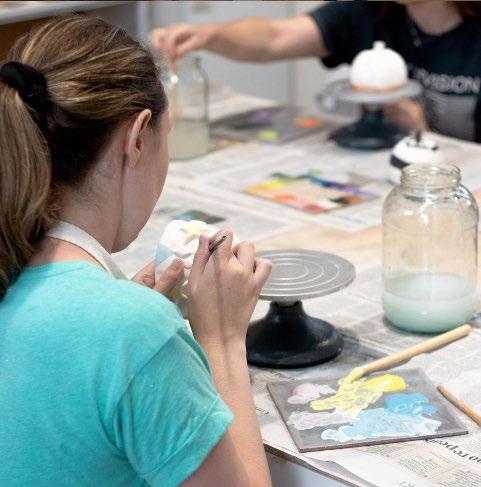
2 minute read
Understanding Academic Misconduct
You’ve probably heard about academic misconduct from your lecturers, tutors, peers, and the QUT Manual of Policy and Procedures. However, it can be hard to understand what counts and doesn’t count - especially as a new university student.
1. Using notes and assignment sharing websites count as academic misconduct.
Advertisement
Do not use websites like CourseHero, Chegg, and StuDoco. Whether you are accessing the information on the site or uploading old assignments - you could be caught for collusion, cheating, contract cheating or plagiarism. The content on these sites is often outdated and incorrect, so it’s better to do your own reputable research.
2. You can plagiarise yourself.
Any work that you have submitted for an assignment cannot be used again. This is selfplagiarism and is not allowed at QUT. Even if you failed the assignment and are retaking the course, you cannot submit the same content or sections of it. Each assessment you write must be new and authentic. If you are building off of previous work, discuss with your Unit Coordinator before submission.
3. Studying with friends can be collusion.
There is nothing wrong with studying and revising with friends. However, if you are sharing answers, co-writing essays and reports, or asking questions about assessment that you should be doing individually, this can count as academic misconduct. Collusion can happen in person, and online, and can be caught by your faculty. When an assessment is individual, it should be worked on individually, so do not provide friends with copies of your work.
4. Rewriting a copy-pasted sentence is not enough to avoid academic misconduct.
You must reference all sources you use for a piece of assessment, and shouldn’t take chunks of text and rewrite them as your own. Assessment pieces are about showing your marker you have understood the content and can write about it, not rewrite other’s work. Paraphrasing can be caught by plagiarism checkers. It’s always better to write your own work rather than taking blocks of text and rewriting them.
5. There are no limitations for how long after a unit you can be accused of academic misconduct.
The QUT MOPP does not have a time limit for being caught for academic misconduct. Even if you have passed a unit and not been accused of academic misconduct, if a case of plagiarism or collusion comes to light later in your degree, you can still be charged with academic misconduct.
6. If you are accused of academic misconduct, support is available.
Academic misconduct can sound scary, however, help is available. If you get a letter from your faculty accusing you of academic misconduct, contact the QUT Guild Advocacy service at advocacy@qutguild.com as they can guide you through writing your response to the allegation, and help you through the process.
Academic
Advocacy
Support services available online and in person
The QUT Guild Advocacy team can assist you with basically anything – or at least point you in the right direction.
Find out more about what we do at:
qutguild.com/help/academic-advocacy
Legal help requests can still be made at this time:









